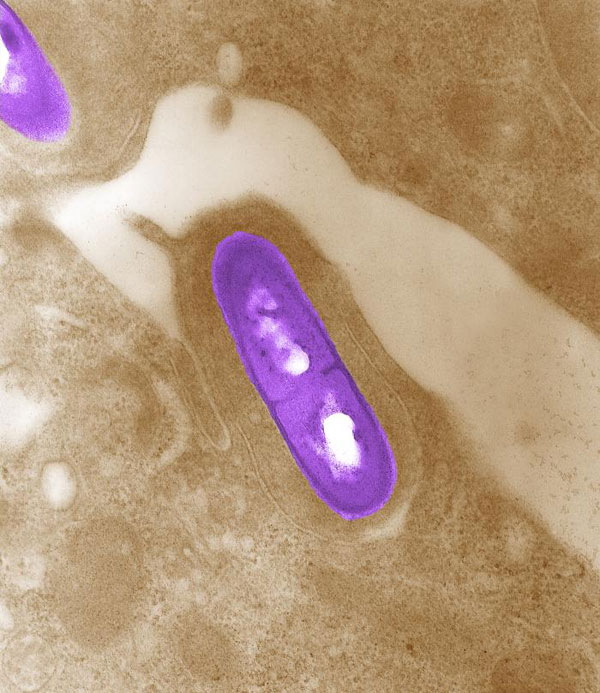Caramel Apples Linked with Listeria Outbreak in 10 States

Five people have now died from Listeria infections that have been traced to caramel apples, the Centers for Disease Control and Prevention announced today. People in 10 states have become ill with Listeria in the outbreak.
The CDC recommends that people do not eat any caramel apple products. Contaminated products may still be for sale at grocery stores or in consumers’ homes, the CDC warned. No recall has been made yet.
As of yesterday (Dec. 18), at least 28 people had been infected with the bacteria Listeria monocytogenes from prepackaged caramel apples, and 26 of those people were hospitalized. Officials have found that Listeria contributed to at least four of the five deaths.
Among the patients are three children who have meningitis, a severe consequence of infection with Listeria. Nine of the cases were in pregnant women or newborn infants, the CDC said.
The majority of the patients who were interviewed reported eating commercially produced, prepackaged caramel apples before becoming ill.
So far, the 10 states with Listeria cases are: Arizona, California, Minnesota, Missouri, New Mexico, North Carolina, Texas, Utah, Washington and Wisconsin.
Health officials in Minnesota, where the outbreak was first reported, said the caramel apples were purchased from Cub Foods, Kwik Trip and Mike’s Discount Foods. Brand names include Carnival and Kitchen Cravings, but more brands could be impacted, CBS reported.
Get the world’s most fascinating discoveries delivered straight to your inbox.
There is a delay between when a person becomes sick, and when the case is reported to public health authorities, the CDC noted. Therefore, any Listeria infection that has happened after Dec. 3 may have not been reported yet, the CDC said. The cases reported in this outbreak occurred between Oct. 17 and Nov. 27.
Listeria bacteria are found in soil and water, and can contaminate foods. Pregnant women, newborns, older adults and people with compromised immune systems are most likely to become ill after eating foods contaminated with Listeria. According to the CDC, about 800 cases of Listeria infection are diagnosed each year in the United States.
A person infected with Listeria usually has fever and muscle aches, and may experience diarrhea or other gastrointestinal symptoms. The bacteria can spread beyond the gastrointestinal tract and cause meningitis, which is the inflammation of the membranes covering the brain.
Email Bahar Gholipour. Follow Live Science @livescience, Facebook & Google+. Originally published on Live Science.

